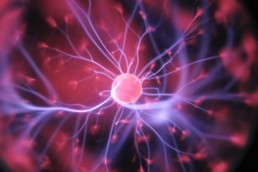
Unlike western medicine, which compartmentalizes mental health, physical health, and spiritual health, traditional Chinese medicine is based on the philosophy that all of these elements must be balanced and harmonized to realize true longevity and vitality.
Practitioners of traditional Chinese medicine are well-versed in the link between conditions typically considered unrelated in western medicine. For example, according to traditional Chinese medicine, kidney health is critical to the essential functions of other systems.
Imbalance in these organs can lead to infertility, depression, weak bones, and painful joints – among other things.
As you explore traditional Chinese remedies and visit with practitioners of ancient wellness techniques, you are sure to hear frequent references to Qi. This is the underlying philosophy of balance and interconnectedness responsible for health and happiness.
What is Qi?
The concept of Qi, also referred to as Chi, drives therapeutic decision-making in traditional Chinese medicine.
Qi is the vital life force within each human being – the same life force that flows through the universe, connecting all things.
When practitioners of traditional Chinese medicine consider treatments for particular symptoms, they are really looking for the underlying condition that has thrown Qi out of balance.
Balance can be best described as the weight of Yin influence versus Yang influence.
Yin is the side of Qi that is solid, dark, heavy, cold, passive, and moist.
Yang, on the other hand, is just the opposite: ethereal, light, insubstantial, active, hot, and dry.
At its core, a balanced Qi means all elements are working together to create a harmonious whole. Yin and Yang are evenly weighted, and neither overshadows the other.
This drives full-body health and overall well-being, which manifests as sustainable energy and vitality.
When Qi drifts into disharmony, systems start to break down. Illness, disease, and a whole host of symptoms begin to manifest. Left untreated, health collapses.
A variety of factors influence Yin and Yang. In some cases, one is amplified, throwing Qi out of balance.
Gaining awareness of how environment and lifestyle impact Qi is a critical first step towards achieving overall health and vitality.

What are the Symptoms of Qi Deficiency?
The signs of Qi imbalance vary depending on the cause of Qi deficiency.
Each of your body’s systems and organs make unique contributions to balance the whole, and it is possible for one disruption to result in discomfort and disease.
These are a few of the symptoms you might notice when Yin or Yang is depleted:
- Exhaustion
- Anxiety
- Depression
- Issues with memory
- Weakness
- Poor digestion
- Constipation or loose stools
- Gas and bloating
- Changes in appetite
- Anemia
- Unusual sweating or heavy night sweating
- Weak immune system
- Heart palpitations
- Problems with blood circulation
- Dry or brittle hair and nails
- Hair loss
- Joint pain
- Back pain
- Muscle aches
- Dry, flaky skin
- Unexplained weight gain or weight loss
Alone or in combination, these conditions can signal Qi deficiency.
Practitioners of traditional Chinese medicine work to identify the root cause of Qi imbalance, then they treat the underlying issue to relieve your symptoms.
What Causes Qi Deficiency?
Your body has an extraordinary capacity for self-healing, and all of your systems work together to maintain a strong, vital Qi.
However, some lifestyle choices can overwhelm your natural protections, causing an imbalance between Yin and Yang.
Some of the worst offenders include the following:
Prescription Medications
Drug companies have developed treatments for just about every known medical condition, but in some cases, the cure is worse than the disease. For example, heavy-duty pain medications like opioids may be destructive to Qi, and you may experience imbalances after taking certain antibiotics.
Antidepressants have a negative effect on Qi, and certain hormone-based medications have been shown to impact the balance between Yin and Yang.
That isn’t to say you should avoid needed treatments. After all, these drugs can save lives. However, it is worth asking questions and exploring alternatives with your physician before assuming prescriptions drugs are the only solution.
Over-the-Counter Medications
There is an unfortunate misconception that medications available over-the-counter are completely risk-free. The truth is that everything you put in your body has an impact on Qi.
It’s simple to solve issues with slight pain by popping a few ibuprofen or to settle a digestive upset with a roll of antacids. However, the long-term effect on your Qi might not be worth choosing the easiest option to manage minor conditions.
Instead, speak with your practitioner about managing your symptoms using methods that support your Qi.
In most cases, you will be able to address the underlying problems causing your discomfort, which will improve your overall health and wellbeing.
Poor Sleep Habits
Every moment you spend in quality sleep restores balance to your body, so it stands to reason that insomnia and restless nights can affect your Qi.
In many cases, problems with sleep set off a negative spiral that leads to severe imbalance and a variety of health conditions.
After a single night of poor or limited sleep, you are sure to notice energy levels sinking. It’s common for people to counteract their exhaustion with chemicals like caffeine.
As you would expect, adding caffeine to your diet disrupts your sleep the next night. That leads to higher caffeine intake the following day, and so on, until you feel that the cycle is unbreakable.
These are just a few examples of the many factors that cause Qi deficiency, and that says nothing of the two most pervasive health issues facing today’s population: nutrition and electromagnetic pollution.
How Does Diet Affect Qi?
Anything that goes into your body can affect the balance of Yin and Yang. The bad news is that poor food choices can rapidly disrupt your Qi.
Fortunately, there is good news, too. You can bring harmony and balance to Qi by selecting foods with powerful restorative properties – and by avoiding items that impede the flow of energy through your body.
Foods that Upset Natural Balance
Refined and processed foods are the biggest offenders when it comes to issues with Qi. They tend to be high in sugar, salt, and fat, and low in the nutrients your body needs to perform at its peak.
Dairy products have also been shown to block critical energy pathways, as they encourage excessive mucus production.
Depending on the nature of your symptoms and the underlying condition causing them, your practitioner may recommend that you avoid foods that are iced or refrigerated, citrus fruits, and/or foods that contain large amounts of yeast, such as dough and beer.
Foods that Promote Wellness
Items that should always be part of your meal planning include an assortment of nuts, fruits, and vegetables.
These should be lightly cooked for maximum effect. Lentils, quinoa, and oats are important components of your diet, as are healthy fats like those found in salmon, avocados, olive oil, and coconut oil.
Round this out with the regular addition of fermented foods, such as kimchi, kefir, and sauerkraut.
Together, these foods have proven helpful in returning balance and restoring Qi.

Does Electromagnetic Pollution Affect Qi?
Modern technology has transformed how people live, work, and play, and most consider it a must to keep up with the demands of daily life. Unfortunately, the use of technology can have an unwanted effect on Qi.
Machines that enable communication and transmission of information, such as radio and television broadcasting, satellites, and cell towers emit electromagnetic pollution, as do the devices individuals use to receive transmissions.
This includes cell phones, radios, televisions, and other smart technology. Constant exposure to this pollution, even at low levels, can disrupt the Qi’s delicate balance, resulting in chronic health conditions and sometimes, life-threatening disease.
There is particular concern that electromagnetic pollution may be linked to infertility in men. Studies have noted reduced sperm count and other sperm abnormalities when mobile devices are carried in holsters or pockets near the waist.
The best way to maintain natural harmony within the body is to reduce the use of handheld devices, particularly at night.
Research shows lower exposure to electromagnetic pollution is associated with better physical and mental health. In short, more time in nature and less time in front of screens is critical to preserving Qi.
How Can Qi Deficiency Be Treated?
Expert practitioners of traditional Chinese medicine know that there is more to wellness than addressing a single symptom.
They focus on pinpointing the underlying condition causing the symptoms, and then they recommend a comprehensive treatment plan to restore balance between Yin and Yang.
Traditional Chinese therapies generally include attention to diet, as well as a custom mix of medicinal herbs designed for your particular needs.
It is also likely that your practitioner will recommend certain lifestyle changes to promote strong, balanced Qi, including stress reduction, limited screen time, more sleep, and a stronger connection to nature.
Most practitioners suggest the addition of targeted physical fitness activities that adhere to the philosophies of traditional Chinese medicine. Examples include Qigong and Tai Chi, which focus on postures and breathing that promote full-body health and wellness.
What’s Next?
About the author

